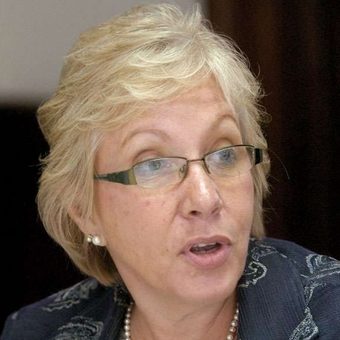
Dr Carolyn Gomes accepted to serve on the developing country NGO delegation to Global Fund boardHer work seen as integral to policy analysis, advocacy and resource mobilization to support services to vulnerable communities
The Global Forum on MSM & HIV (MSMGF) announced that three members of The Consortium of MSM and Transgender Networks, Dr Carolyn Gomes, Simon Cazal, and Berry Nibogora, have been accepted to serve on the developing country NGO delegation to the Global Fund board.
Dr Carolyn Gomes is the Executive Director of Caribbean Vulnerable Communities (CVC), a PANCAP partner. Her work drives policy analysis, advocacy and resource mobilization to support services to vulnerable communities. Her organization, CVC, currently provides grants and technical support to a number of countries across the Caribbean islands and mainland territories.
Read more about CVC here.
Since its convening in 2013, The Consortium has reached communities of men who have sex with men, transgender people and other key populations in more than 60 countries worldwide, thanks in part to a grant provided by the Robert Carr Civil Society Network Fund (RCNF). Over the past two and a half years, members of The Consortium took aim at specific obstacles impeding meaningful engagement of men who have sex with men and transgender people in Global Fund processes at country level. Specifically, the Consortium increased community involvement of key populations in national AIDS planning processes and created direct links with Global Fund personnel. CVC led the development of the Jamaica Civil Society Forum that helped reform the CCM, including creating a civil society chair.
“We are very encouraged to see that the Global Fund is working to meaningfully include men who have sex with men and other community advocates in their programmes, policies, and funding initiatives,” said Dr George Ayala, Executive Director of The Global Forum on MSM & HIV (MSMGF). “We are proud to be a part of facilitating linkages between local advocates and global policy processes, ensuring that local needs continue to shape the global AIDS response.”
MSMGF stated that it is confident that the advocates’ experience, perspectives, and skills will greatly benefit both the Global Fund and key populations worldwide. MSMGF pledged support to their work on the delegation and wished all Global Fund NGO delegation members success in the work that lies ahead.
WHAT IS PANCAP?
PANCAP is a Caribbean regional partnership of governments, regional civil society organisations, regional institutions and organisations, bilateral and multilateral agencies and contributing donor partners established on 14 February 2001. PANCAP provides a structured and unified approach to the Caribbean’s response to the HIV epidemic, and coordinates the response through the Caribbean Regional Strategic Framework on HIV and AIDS to maximise efficient use of resources and increase impact, mobilise resources and build the capacity of partners.
What are the Global AIDS Strategy 2021–2026 targets and commitments?
If targets and commitments in the strategy are achieved:
- The number of people who newly acquire HIV will decrease from 1.7 million in 2019 to less than 370 000 by 2025
- The number of people dying from AIDS-related illnesses will decrease from 690 000 in 2019 to less than 250 000 in 2025.
- The goal of eliminating new HIV infections among children will see the number of new HIV infections drop from 150,000 in 2019 to less than 22,000 in 2025.
What are the 95-95-95 Targets for ending AIDS?
- 95% of People Living with HIV know their HIV status;
- 95% of people who know their status on treatment; and
- 95% of people on treatment with suppressed viral loads.
HELPFUL LINKS:
Global AIDS Strategy 2021–2026, End Inequalities, End AIDS
https://pancap.org/pancap-documents/global-aids-strategy-2021-2026-end-inequalities-end-aids/
Caribbean Regional Strategic Framework on HIV and AIDS (CRSF) 2019-2025
https://pancap.org/pancap-documents/caribbean-regional-strategic-framework-2019-2025/
